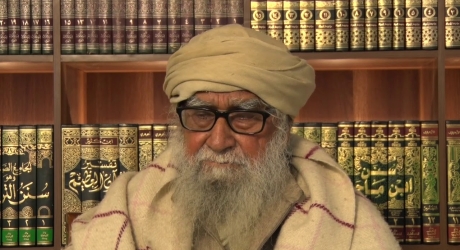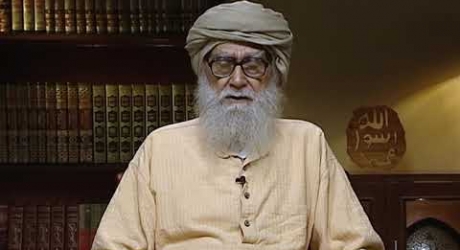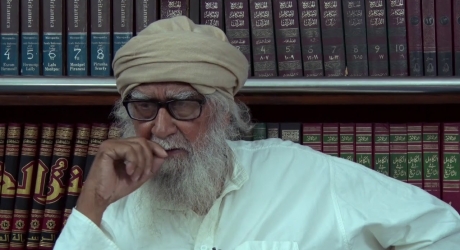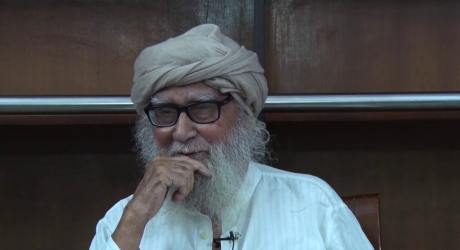Tazkiyah, purification of one’s personality, is a Quranic term. The Quran tells us that tazkiyah, or developing a Quranic personality, is the means for human salvation (91:9-10). Furthermore, according to the Quran (20:76), only those people will be admitted to the world of Paradise who has purified themselves in this world. Therefore, the literal meaning of tazkiyah is ‘purification’. Just as iron ore passes through various challenging stages and finally acquires the shape and form of a helpful machine, a human being’s personality passes through difficult stages and emerges as a purified personality. Personality development in the Quran is called tazkiyah. What are the problematic stages one must pass to purify and develop one’s personality? A few examples of situations that serve to purify us are: remaining firmly on justice when our ego gets a beating, controlling our anger when provoked, remaining modest when given some position of honour, dousing the flames of revenge within ourselves, converting feelings of hatred into feelings of love and acknowledging others even though we are not compelled to. These are opportunities for developing a purified personality through tazkiyah. This is the process of developing a Quranic personality.
There is a background to this topic. I have said earlier that it is extremely important to have one’s mind triggered by the events around one. The mind gets triggered only when a person is prepared. Everyone somewhere or the other experiences the triggering of their minds, but depending on their situation. People’s minds generally trigger with regard to matters pertaining to their children, job, business, and other material interests. However, when a believer faces various experiences, his mind is triggered for thoughts about God, the Hereafter, Paradise, etc.
It is said that marefat or God realization is essential in order to do tadabbur. But tadabbur alone is not enough, triggering of the mind is also essential. If a person is not mentally prepared for having his mind triggered then however many books he reads, his mind will not trigger. In the Quranic terms, this concept of triggering of the mind is called tawassum. Tawassum means to have your mind triggered by an experience, and then to be able to arrive at some spiritual discovery through it. According to the Quran,
There are certainly signs in that for those who can learn a lesson (mutawassimin). (15:75)
This means: “There are signs for those who do tawassum”. That is, those whose minds get triggered when see events around them.
For example, once the Prophet saw some birds flying. Birds are very innocent beings. They have no hatred or malice in their hearts for anyone. On seeing them, the Prophet said that people of Paradise will be like birds. “The hearts of the people of Paradise will be like the hearts of birds.” (Muslim)
There is peace and love in the hearts of birds. From this Hadith we learn that if one doesn’t have the quality of tawassum, one can never have development in one’s marefat. For greater development of marefat, tawassum is essential. All great discoveries happened in history through tawasssum, that is, triggering of the mind.
If your mind triggers, then alone you can have a greater spiritual development.
I had one such experience today. In today’s Speaking Tree, the title of one of the articles was: Know Your Potential. There are many articles with such titles in newspapers. In reality, the theme of these articles is: Know Your Money Potential. My mind was triggered by this event, and I started reflecting on some verses of the Quran. The Quran says:
Do not forget your share of the world. (28:77)
People generally take this verse to mean: Don’t forget your “share of the world” from the world. But the correct meaning is: Don’t forget to take your “share of the Hereafter” from the world.
For example, the Prophet saw the birds and arrived at a spiritual discovery. But, when a hunter sees birds, he will only think of shooting at them and seizing them. Thus, a hunter takes the worldly portion from the world, while the Prophet took the share of the Hereafter from the world. An unbeliever takes the world from the world, but a believer takes the Hereafter from the world.
Every person born into this world is full of potential. Now it is up to every person to use this potential at whichever place he pleases. The majority uses it for the world, while a believer uses it for the Hereafter.
The article above says that man has very strong desires. Strong desires are the greatest test for man. An example of this is Prophet Adam. Man desires everything. Adam was settled in Paradise and all of it was available to him. However, he was asked not to approach a particular tree. But, his mind was distracted toward that tree alone. Man has strong temptation for that which he does not have. If man possesses 99% and only 1% is not given to him, then it is in his nature to jump to achieve the remaining 1%. This is what Adam did. God demonstrated this nature of man through Adam’s example.
These desires which man is born with have to be diverted toward Paradise. This is man’s test. There are two things that are man’s test in this world. People generally fail with regard to both of these. The first test is freedom. People always misuse their freedom, and thus using their freedom properly or misusing it is a test. The second test is that man is born with a certain potential in this world. His test is that he does not underutilize this potential God has endowed him with. These are the two tests of every individual on earth.
What is the meaning of underutilizing one’s potential? There is a very illustrative example of this in an incident from Maulana Abul Hasan Ali Nadwi’s life; he was known as Maulana Ali Miyan. Once he happened to come to Delhi for some purpose. Those persons who had passed out from the madrasa Nadwatul Ulama, of which Maulana Ali Miyan was rector, came to visit him at the place where he was staying. These people were working in Delhi in the embassies of various Arab countries. Since they had studied from Nadwa, they knew Arabic well and these embassies had employed them as they need people well-conversant in the Arabic language. Maulana Ali Miyan came to know of this, and he said to them: Ruddu ilayna arabiyatana (Return our Arabic language to us!) He meant that they were taught Arabic at Nadwa not for the purpose of working in embassies, rather they were expected to do tasks of greater importance, such as doing something for religion.
Similarly, if we underutilize our God-given potential, God will say to use in the Hereafter: Return the qualities I had given you. The Quran says:
If it had been Our will, We could have used these signs to exalt him, but instead he clung to the earth and followed his own desires. (7:176)
Man was given qualities for the purpose of utilizing his mind and discovering the truth. He was to use his energy for God’s cause, make Paradise his goal and work towards it. But, in turn, man “remained clung to the earth”. That is, he became an earning animal.
When you enter the world, you see that there are various activities happening around you. These give immediate success and therefore you devote yourself to them. This is underutilization of one’s capabilities.
Another verse of the Quran is:
Except for those who repent and believe and do good deeds. God will change the evil deeds of such people into good ones. (25:70)
For one who repents, believes and does good deed, then for such a person God will convert his evil deeds (saiyyat) into good deeds (hasanat). In this verse, saiyyah (evil deed) means ash-shakhsiyyat as-saiyyah (evil personality) and hasanah (virtuous deed) means ash-shakhsiyyat al-hasanah (virtuous personality). God doesn’t arbitrarily convert evil deeds into good deeds, rather it means that this happens through the law of nature. Through the law of nature an evil personality will be converted into good personality or virtuous personality. The law of nature converts man’s evil personality into a god personality when he undertakes a process: first he repents (tawbah), second he believes (iman), and third, he does good works (amal-e-saleh).
This is a process that one goes through. Tawbah means repentance, to turn back, or to accept one’s mistakes. Man has very strong desires therefore it is inevitable that he commit mistakes. If he stays among strong temptations and possesses total freedom, it is but natural that he would take to wrongdoing. The Prophet once said: “All Children of Adam are wrongdoers, and the best wrongdoers are those who repent.” (Tirmidhi)
Doing tawbah doesn’t merely mean uttering the word tawbah several times. Doing tawbah is a great act. If you discover you have made a mistake, you should be shocked that you have committed a mistake, it should create an upheaval in your personality. Then the process of increasing of faith will be initiated. So, first, say ‘I was wrong’, then the process of iman will start, your mind will develop, your marefat will increase, you’ll discover the Hereafter, as you have been intellectually awakened, and then third, you will do good deeds. Thus, you’ll develop a good personality.
When you go through this process, your evil personality will get converted into a virtuous personality. You have to pass through this process in order to bring about this change. There is a very good example of this in the history of Islam. It is the example of Umar bin Abdul Aziz. He was the caliph of Umayyad dynasty. When he was caliph, Umar bin Abdul Aziz lived as a pauper, an ordinary person. He was born into a royal family, became governor of Medina and lived a very royal lifestyle. There used to be an entourage with him wherever he went. He used to wear very luxurious clothes and even perfumed his clothes. But when he became caliph, he started living ordinarily. Before this when he was governor in Medina, he lived very royally. Damascus was the capital at that time. There was a Tabiee called Khubayb in Medina at the time. He used to often narrate a Hadith regarding those rulers who used to live royally and misuse people’s money. Umar came to know of this and sent for Khubayb. He asked Khubayb to be arrested, flogged at hundred times and be made to stand in the cold outside the mosque and have cold water poured over him. The punishment was so hard that Khubayb died due to its severity. This event became a super-trigger in Umar’s life. He started considering himself a killer. He thought that in the Hereafter, Khubayb may stand in front of God and tell Him that he was killed by Umar for no wrong of his. This incident gave a super-shock to Umar. An earthquake shook his entire personality and everything changed for him: his mannerism, style of speaking, behaviour, and thinking, all changed. This is tawbah, which brings about transformation of an evil personality into a virtuous personality. A new thought emerged in him and he re-thought the deed he had committed. He often thought of the Hereafter and what would happen if Khubayb stood in his path to Paradise. Thus, he no longer continued on with the ways of his earlier life. This is transformation through tawbah. The deeper sense of the above verse is: One who gets a shock after committing mistakes, a revolution happens in his personality and then a process of reform is initiated. He will thus change his behaviour, his conduct, his thinking. Here evil “personality” and virtuous “personality” are intended.
Mistakes are opportunities. Because, when you realize you have made a mistake, you will be led to a great emergence in your personality. This is the law of nature. No one is born as an angel. All have to turn their potential into actuality.
The Prophet said: “If you were a people who did not commit sin, God would take you away and replace you with a people who would sin and then seek God’s forgiveness so He could forgive them.” (Muslim)
This means that for the development of a heavenly personality, the process kept by God is for man to make mistakes and then repent through revolutionizing his personality. If men don’t commit mistakes, they will be just like animals, not like the people whom God desires. Everything is achieved through a revolution, a storm, and not smoothly. God wants man to make mistakes, then become repentant, and for him to acknowledge deeply that he committed a mistake. This is brought about through a revolution in one’s personality.
The way to Paradise is the way that has been set by God. We can’t get Paradise in any other way. This way is for man to feel greatly repentant, so that he then has upheavals in his personality, which then lead him to the discovery of God and Paradise. Man comes into this world with a potential, and he has to develop this potential.
Question and Answer
Q1. Everything in this world is for test: children, money, health, difficulty, etc. Thus we shouldn’t ask from God those things that are meant for test, rather man should ask for those things that are not his test.
A1. This is right. You should read the lives of Sahaba to understand this. Sahaba never asked for those things that people today ask for. They used to pray for forgiveness, granting of Paradise in the Hereafter, nearness to God, etc.
Q2. Tafakkur and tadabbur are not enough. What does this mean?
A2. When you keep thinking about a verse, you will come to know of the basic meaning of that verse. But creativity comes through tawassum. It opens up new meanings. When you see something, or experience something, your mind will get triggered. Thus, new aspects open up to you and this increases your creativity. This gives ala marefat (higher realization). Reading of traditional books and doing tadabbur and tafakkur on these is not enough. One is iman, other is taraqqi yafta iman (development in one’s faith). The same is true for marefat. For ala marefat, triggering of the mind is essential. All scientists discover great laws in this manner: triggering of the mind through some event or observation. This is law of nature, and tawassum is just the same.
Q3. What is the difference between iman and rational thinking?
A3. Iman initially is belief. For example, when you believe in God, you don’t see Him, because He is invisible, so this is belief or aqeedah. This is not final. Man is a rational thinker, he reasons things out. Iman is originally faith, and when you reason it out, it becomes conviction. Addition of this to iman, makes it “iman plus”. Rational thinking makes your iman, iman plus.
Q4. Somebody said that reading the Chapter Ya Sin forty-one times helps easing difficulties, did the Sahaba do this?
A4. The Sahaba didn’t do this, however, according to me, it is permissible.
Q5. According to a Hadith: Jis ne waqt ke imam ko nahin pehchana, to wo jahalat mein mara?
A5. The word in this Hadith is not pehchanna (to recognize), but it is ita‘at (to follow). This Hadith is true in the worldly sense: if you don’t accept the imam or the leader as the leader, there’ll be mutual fighting, hatred, negativities and everything will get jeopardized. It has practical significance, not theoretical or belief related significance.
Q6. What is the word for brainstorming in Islam?
A6. The Quran says: “True believers are those whose hearts tremble with awe at the mention of God.” (8:2) This is brainstorming. Their hearts tremble not merely at the word “God”, but they realize the greatness of God, their dependence on Him, and this leads to brainstorming. This leads to taraqqi in iman.
Q7. Will the mistakes we committed previously be removed entirely after going through the process of repentance?
A7. Yes, your mistakes will be removed from your record. Who forgives, but God? The Qurans says: “Who but God can forgive sins?” (3:135) Only God can do this. God alone can delete unwanted items from man’s register of deeds.
At another place God says: “O My servants, who have committed excesses against their own souls, do not despair of God’s mercy, for God surely forgives all sins.” (39:53) This is a great mercy for man. No deed is exempted in this verse. The concept of tawbah in Islam is that when man does true repentance, that is, undertakes that process, he will surely be forgiven. God accepts tawbah until the very end.
Q8. What is the meaning of the verse: “Our Lord, grant us good in this world.” (2:201)
A8. People think here “good of the world” is material benefit. But it means: give us what is good according to You, not good according to me. God determines what is good, not man. That is, it means: “God give us the good which is good according to You, and give us the good in the Hereafter which is good according to You.”
Q9. What would have been your case had you not received guidance from the Quran and Hadith?
A9. I often think in solitude what would have been my condition had there been no Quran and had we not the life of the Prophet. Man has great potential, but at the same time he has many limitations. We need basic guidance, and a model. These are provided in the Quran and in the life of the Prophet. If we don’t have these, we’ll be deviated. Mere reason is not alone to reach to the truth. Even for the Prophet it was essential that he be given guidance: “Did He not find you wandering, and give you guidance?” (93:7)
Q10. Why are the books on the life of the Prophet on the pattern of maghazi alone? It gives the impression that the Prophet’s life was full of war and battles.
A10. There are three references for Prophet’s life: the Quran, Hadith and Seerah books. If you want to understand the life of the Prophet, you must consult all these sources. Books on seerah or the prophetic biography are not enough to form an opinion about the life of the Prophet.
Q11. Why do we face difficulties?
A11. God has made the world such that man will surely experience difficulties. “We have created man into a life of toil and trial.” (90:4) This is the law of nature and the creation plan of God. One cannot avoid these difficulties. We can only adopt the right attitude toward problems, that is, we must do dua and never take an emotional step, but always take a rational step after taking the situation into consideration. One cannot save oneself from difficulties.
Q12. I asked a scholar whether Iqamat-e-deen is meant only for the individual (zaat) or earth (zameen). He said for both.
A12. Iqamat-e-deen is only with respect to zaat, and not zameen. Follow religion in your individual life: thinking, speech, behaviour. To establish religion on earth is innovation of those who have politicized Islam. It has nothing to do with the Quran. For further details, read my book, Tabir ki Ghalti.












